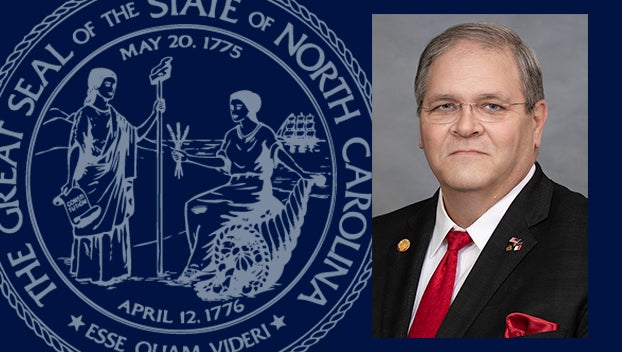Fees could increase to cover city services
Published 11:04 pm Sunday, February 7, 2016
Fees for some city services could increase in the next fiscal year, which begins July 1.
Those increases, if they occur, could help offset the loss revenue once derived by issuing business-privilege licenses and to make some city services more self-sufficient.
Because of action taken by the North Carolina General Assembly, local governments lost their authority to generate revenue by issuing business-privilege licenses. The possible increases in fees, according to city officials, is related to the failure of the General Assembly to keep its promise to provide an alternate revenue source after it took away the city’s authority to generate revenue by issuing business privilege licenses. That decision by the Legislature cost the city at least $100,000 in annual revenue. The city took in about $123,000 in such revenue during the 2013-2014 fiscal year, according to city officials.
Councilman William Pitt broached the issue during the City Council’s Jan. 25 meeting when he asked Matt Rauschenbach, the city’s chief financial officer, a question concerning the situation.
“Matt, one question. Are we looking at the possibility of maybe some type of replacement for the privilege-license tax coming this year?” Pitt said.
“From where — the state?” Rauschenbach replied.
“The state,” Pitt said.
“The state took it away last year. They promised they would replace it. We didn’t budget a replacement. What we thought would happen, happened,” Rauschenbach said about the Legislature’s failure to replace that lost revenue with another revenue source.
“Even if the General Assembly were to make some effort to replace that money, they’re not going into session until late April. By the time they get it passed, we’ll be into the next budgeted year. So, we can’t count that money in (the upcoming) budget at all,” Councilman Doug Mercer said.
City Manager Bobby Roberson weighed in on the matter.
“We, at the staff level, won’t consider that. I don’t ever anticipate ever getting back the business-license revenue. So, we need to put that aside and say we’ve lost $165,000 and we’ve got to make it up somewhere,” Roberson said. “That’s where we are. That’s the hard and fast truth. That’s where we are.”
Roberson also addressed the city’s cost to provide electricity to its customers. In August 2015, the city’s residential and small general-service power customers received a 6-percent reduction in their rates. That reduction is the result of Duke Energy Progress and the North Carolina Eastern Municipal Power Agency completing the approximately $1.25 billion sale of NCEMPA’s generating assets to Duke Energy Progress. Since then, the city has been exploring other rate changes.
“If, in fact, over the next four years we’re not get a wholesale cost (increase), does that mean that our electrical distribution system’s cost of doing business is not going to go up? The answer to that is yes it is because we have operating and maintenance costs,” Roberson said. “So, to me, on all the fees that we have, I’m going ask that we continually do the offset in terms of operating and maintenance. Otherwise, we’ll fall way behind. In a lot of instances, what we’ve done in the past five or six years is sort of play a catch-up kind of scenario. What we want to do now is pay as you go. … There are only three ways you can balance the budget, per se. You’ve got to look at taxes. You’ve got to look and the transfers, and you’ve got to look at reduction in force.”
Roberson said he would not recommend a reduction in force to balance the city’s budget.
“You will see, from my perspective, an increase in those fees,” Roberson said, noting such increases would reflect increased cost in providing services.






